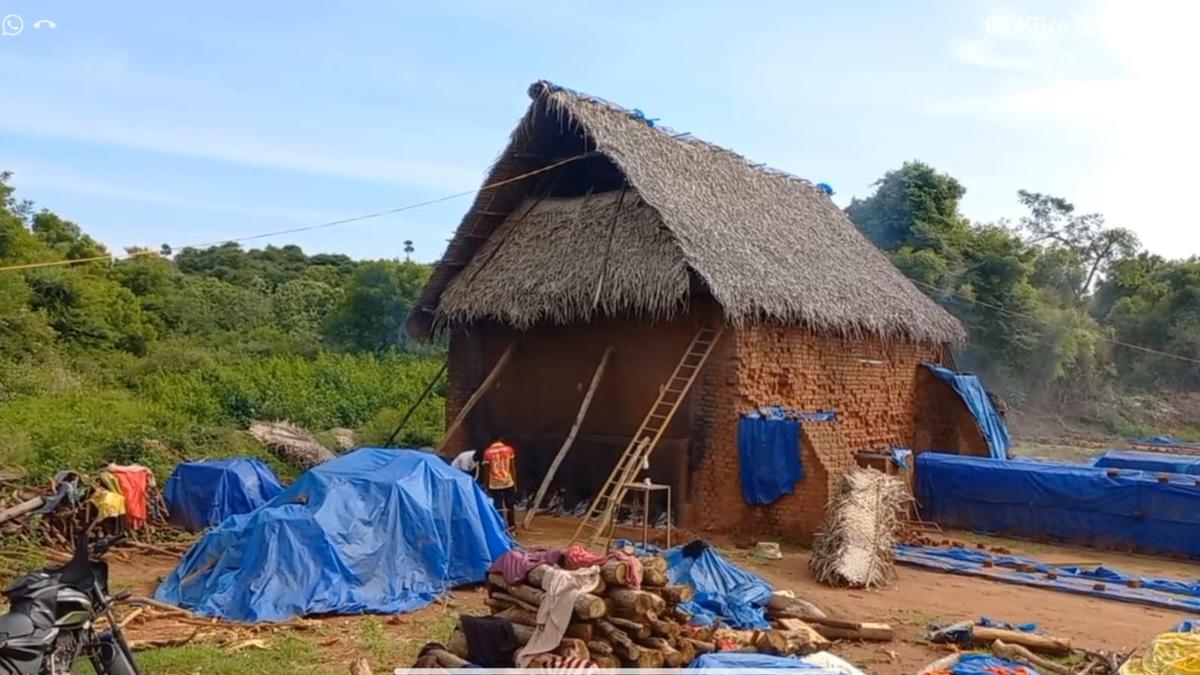
Couple suffocates to death near brick kiln in Vellore
The Hindu
Couple suffocates to death near brick kiln in Vellore
A 42-year-old man S. Deivasigamani and his wife Amulu, 36, died allegedly due to suffocation on Tuesday after smoke from a brick kiln engulfed a store room near the kiln, in which they were sleeping, at Puthur village near Kaniyambadi town in Vellore district in the early hours of Tuesday.
According to the police, the couple, who hailed from Puthur village, had taken on lease the brick kiln belonging to K. Palani Mudaliyar for over 15 years. Their children were at their house, located nearly 1.5 km from the kiln.
Around 9 p.m on Monday, the couple had lit fire to burn the bricks in the chambers and went into a nearby store room to take rest. The top portion of the brick kiln and the room were covered with tarpaulin to prevent strong winds from putting out the fire. However, due to heavy rain in the village, the fire was put down and thick smoke from the chambers engulfed the small room leading to the couple getting suffocated, the police added.
Around 5 a.m, K. Srinivasan, 50, owner of another brick kiln located in the vicinity, saw the smoke and rushed to the store room where he found the couple lying unconscious. Along with some of the locals, he shifted them to the Government Medical College Hospital. Deivasigamani was declared brought dead and Amulu died in the hospital. Their bodies were sent for postmortem. A case has been registered by the Vellore Taluk police.
Revenue officials, led by K. Senthil, Tahsildar (Vellore), inspected the brick kiln to inquire if license was obtained by the owner and safety measures were in place. Further investigation is on, the police added.

“Writing, in general, is a very solitary process,” says Yauvanika Chopra, Associate Director at The New India Foundation (NIF), which, earlier this year, announced the 12th edition of its NIF Book Fellowships for research and scholarship about Indian history after Independence. While authors, in general, are built for it, it can still get very lonely, says Chopra, pointing out that the fellowship’s community support is as valuable as the monetary benefits it offers. “There is a solid community of NIF fellows, trustees, language experts, jury members, all of whom are incredibly competent,” she says. “They really help make authors feel supported from manuscript to publication, so you never feel like you’re struggling through isolation.”

Several principals of government and private schools in Delhi on Tuesday said the Directorate of Education (DoE) circular from a day earlier, directing schools to conduct classes in ‘hybrid’ mode, had caused confusion regarding day-to-day operations as they did not know how many students would return to school from Wednesday and how would teachers instruct in two modes — online and in person — at once. The DoE circular on Monday had also stated that the option to “exercise online mode of education, wherever available, shall vest with the students and their guardians”. Several schoolteachers also expressed confusion regarding the DoE order. A government schoolteacher said he was unsure of how to cope with the resumption of physical classes, given that the order directing government offices to ensure that 50% of the employees work from home is still in place. On Monday, the Commission for Air Quality Management in the National Capital Region and Adjoining Areas (CAQM) had, on the orders of the Supreme Court, directed schools in Delhi-NCR to shift classes to the hybrid mode, following which the DoE had issued the circular. The court had urged the Centre’s pollution watchdog to consider restarting physical classes due to many students missing out on the mid-day meals and lacking the necessary means to attend classes online. The CAQM had, on November 20, asked schools in Delhi-NCR to shift to the online mode of teaching.









